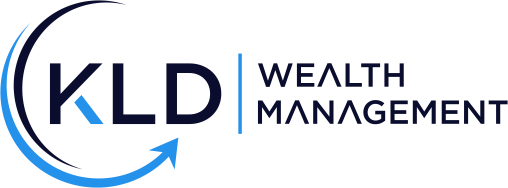Get in touch
Call or Text:
937-404-5180
Email:
dwiedmeyer@kldwealth.com
Avoiding the Top 3 Estate Planning Pitfalls: How Personal Financial Planning Can Help
Estate planning can feel like a daunting task, especially with so many moving parts and potential pitfalls. But with the right guidance and a comprehensive personal financial plan, you can ensure that your legacy is protected and your loved ones are taken care of.
Let's dive into the top three estate planning pitfalls and explore how personal financial planning can help you avoid them.
Pitfall #1: Not Having a Will or Trust
The Problem: Without a will or trust, your estate will be subject to state laws, which means the distribution of your assets may not align with your wishes. This can lead to family disputes, unnecessary legal fees, and a prolonged probate process.
The Solution: A well-crafted will or trust ensures that your assets are distributed according to your wishes. Personal financial planning helps you identify the most suitable estate planning tools for your situation. By working with a financial planner, you can create a comprehensive estate plan that reflects your values and goals.
Pitfall #2: Failing to Update Beneficiary Designations
The Problem: Life changes such as marriage, divorce, the birth of children, or the death of a loved one can render your current beneficiary designations outdated. If you don't update these designations, your assets might not go to the intended recipients.
The Solution: Regularly reviewing and updating beneficiary designations is a critical component of personal financial planning. Your financial planner will help you stay on top of these updates and ensure that your beneficiary designations reflect your current wishes and circumstances.
Pitfall #3: Overlooking Tax Implications
The Problem: Estate taxes can significantly reduce the amount of wealth passed on to your heirs. Without proper planning, your estate could be subject to federal and state estate taxes, capital gains taxes, and income taxes.
The Solution: Personal financial planning includes strategies to minimize tax liabilities. By working with a financial planner, you can explore options such as gifting strategies, charitable donations, and tax-efficient investment vehicles to reduce the tax burden on your estate.
How Personal Financial Planning Can Help
Personal financial planning is your roadmap to avoiding these and other estate planning pitfalls. Here’s how:
- Comprehensive Analysis: A financial planner will conduct a thorough analysis of your financial situation, identifying potential risks and opportunities.
- Customized Solutions: Based on your unique circumstances, your planner will recommend tailored strategies to protect your assets and ensure your estate plan aligns with your goals.
- Ongoing Support: Estate planning is not a one-time event. Your financial planner will provide ongoing support, helping you adjust your plan as your life evolves.
Call to Action
Don’t leave your legacy to chance. Partner with a trusted financial planner to create a comprehensive estate plan that safeguards your future and provides peace of mind for your loved ones. Contact us today to start your estate planning journey and ensure your wishes are honored.
By proactively addressing these common pitfalls, you can protect your legacy and provide for those who matter most. Let’s work together to build a secure and prosperous future.
With the right estate planning strategies, you can avoid common pitfalls and ensure your legacy is preserved. Remember, it’s never too early to start planning for the future. Reach out today, and let’s secure your peace of mind.





Phone
937-404-5180
706 Deerfield Rd.
Lebanon, OH 45036
Get financial wellness tips, directly to your inbox.
Contact Us
We will get back to you as soon as possible.
Please try again later.
All Rights Reserved | KLD Wealth | Privacy Policy | Form ADV
Advisory services offered through KLD Wealth Management, LLC, an investment adviser registered with the state(s) of Ohio. Advisory services are only offered to clients or prospective clients where KLD Wealth Management, LLC and its representatives are properly registered or exempt from registration.
The information on this site is not intended as tax, accounting or legal advice, nor is it an offer or solicitation to buy or sell, or as an endorsement of any company, security, fund, or other offering. Information provided should not be solely relied upon for decision making. Please consult your legal, tax, or accounting professional regarding your specific situation. Investments involve risk and have the potential for complete loss. It should not be assumed that any recommendations made will necessarily be profitable.
The information on this site is provided “AS IS” and without warranties either express or implied and the information may not be free from error. Your use of the information provided is at your sole risk.
